1. 打印命令行提示符

#include<stdlib.h>
char* HostName() //获取主机名
{
char* ret = getenv("HOSTNAME");
if(ret) return ret;
else return (char*)"None";
}
char* UserName() //获取用户名
{
char* ret = getenv("USER");
if(ret) return ret;
else return (char*)"None";
}
char* CurrentWorkdir() //获取当前工作目录
{
char* ret = getenv("PWD");
if(ret) return ret;
else return (char*)"None";
}
int main()
{
//打印命令行提示符
//读取环境变量的内容 / 调用函数(gethostname获取主机名、getcwd获取当前工作目录)
printf("[%s@%s %s]#", UserName(), HostName(), CurrentWorkdir());
}2. 获取用户输入的命令行字符串
1.可以使用scanf读取字符串吗?
答:不能,scanf用于从标准输入(键盘)读取格式化输入,读取字符串时,scanf会在遇到空白字符(空格、换行符\n、制表符\t等)时停止读取,并将读取的字符串存储到字符数组中。
1.概念:是shell内部直接提供并实现的命令,不要shell创建子进程来调用一个独立的外部程序(exe函数)来执行,而是由shell本身解释并执行。
2.可用性和依赖性:内建命令随shell的安装而自动提供,不需要额外的安装。
3.常见的内建命令:cd、echo、export、pwd、exit等。
4.2. 外部命令
4.3. cd



int BuiltinCmd()
{
int ret = 0; //用于判断是否为内建命令,不是,则为0、是,则为1
if(strcmp("cd", argv[0]) == 0)
{
ret = 1;
char* target = argv[1]; //需要切换的路径
if(!target) target = getenv("HOME"); //cd,表示切换到家目录中
chdir(target); //改变当前工作目录,但不改变环境变量PWD的内容
char tmp[SIZE];
snprintf(tmp, SIZE, "PWD=%s", target); //多变一
putenv(tmp); //修改或者新增环境变量
}
return ret;
}
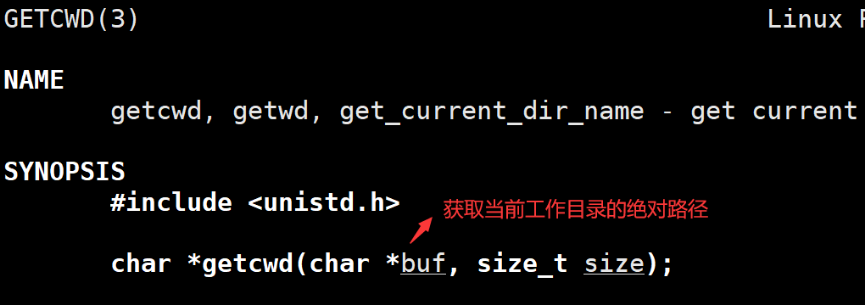
#include<stdio.h>
#include<stdlib.h>
#include<string.h>
#include<unistd.h>
#define SIZE 1024
char* argv[SIZE]; //相当于main函数的命令行参数表,末尾一定要以NULL结尾
int BuiltinCmd()
{
int ret = 0; //用于判断是否为内建命令,不是,则为0、是,则为1
if(strcmp("cd", argv[0]) == 0)
{
ret = 1;
char* target = argv[1]; //需要切换的路径
if(!target) target = getenv("HOME"); //cd,表示切换到家目录中
chdir(target); //更改当前工作目录
char tmp[SIZE]; //存储获取到的当前工作目录的绝对路径
char pwd[SIZE]; //存储更改后的环境变量PWD的内容
getcwd(tmp, SIZE); //获取当前工作目录的绝对路径
snprintf(pwd, SIZE, "PWD=%s", tmp); //多变一,拼接
putenv(pwd); //修改环境变量PWD的内容
}
return ret;
}
int main()
{
char CommandLine[SIZE];
while(1)
{
//1.打印命令行提示符+获取用户输入的命令行字符串
int n = Interative(CommandLine);
if(n == 0) continue; //空串,用户继续输入
//2.分割命令行字符串
Split(CommandLine);
//3.处理内建命令
n = BuiltinCmd();
if(n) continue;
}
return 0;
}4.5. export
int BuiltinCmd()
{
int ret = 0;
if(strcmp("export", argv[0]) == 0)
{
ret = 1;
if(argv[1])
{
putenv(argv[1]);
}
}
return ret;
}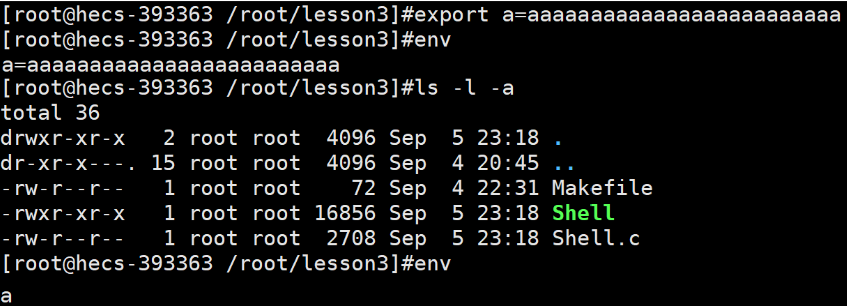
char env[SIZE]; //相当于环境变量表,存储新增的环境变量
int BuiltinCmd()
{
if(strcmp("export", argv[0]) == 0)
int ret = 0;
{
ret = 1;
if(argv[1])
{
strcpy(env, argv[1]); //将新增的环境变量的内容,拷贝到环境变量表中
putenv(env);
}
}
return ret;
}4.6. echo
char env[SIZE]; //相当于环境变量表,存储新增的环境变量
int BuiltinCmd()
{
if(strcmp("echo", argv[0]) == 0)
{
ret = 1;
if(!argv[1]) //echo:打印一个空行
printf("\n");
else if(argv[1][0] != '$')
printf("%s\n", argv[1]); //echo aaaa:打印aaaa
else
{
if(argv[1][1] == '?')
{
printf("%d\n", exit_code); //echo $?:打印退出码
exit_code = 0; //便于在执行echo $?时,退出码=0
}
else
printf("%s\n", getenv(argv[1] + 1)); //echo $USER:打印环境变量的内容
}
}
return ret;
}5. 执行命令
5.1. 创建子进程进行程序替换
#include<stdlib.h>
#include<string.h>
#include<sys/types.h>
#include<sys/wait.h>
#define SIZE 1024
#define SP " "
char* argv[SIZE];
int exit_code; //全局变量,存储子进程的退出码,便于echo $?直接输出退出码
void Execute()
{
pid_t id = fork();
if(id == 0)
{
execvp(argv[0], argv); //程序替换,执行命令
exit(1); //子进程退出
}
int status = 0;
pid_t rid = waitpid(id, &status, 0); //父进程等待,进行回收子进程的资源
if(rid > 0)
{
exit_code = WEXITSTATUS(status); //正常退出,获取子进程的退出码
}
}
int main()
{
char CommandLine[SIZE];
while(1)
{
//1.打印命令行提示符+获取用户输入的命令行字符串
int n = Interative(CommandLine);
if(n == 0) continue; //空串,用户继续输入
//2.分割命令行字符串
Split(CommandLine);
//4.执行命令(创建子进程,进行替换)
Execute();
}
return 0;
}6. 重定向
为什么要宏定义多个整数,定义全局变量redir_type?
重定向有三种类型:输出重定向>、追加重定向>>、输出重定向。
我们需要在命令行参数中,查找是否有重定向,如果有重定向,就需要获取重定向的类型,从而在根据重定向的类型执行对应的指令。
所以我们用宏定义多个整数,来表示重定向的类型; 定义一个全局变量redir_type,用来记录获取到的重定向的类型
#define NoneRedir -1 #define StdinRedir 0 #define StdoutRedir 1 #define AppenRedir 2 char* filename = NULL; int redir_type = -1;
3.执行流程:首先判断是否包含重定向(checkRedir);再把我们要执行的命令进行分分割(将重定向字符设置为’\0’,这样strtok只能切割要执行的命令);最后让子进程执行重定向操作。
#define IsSpace(buf, pos) do{while(isspace(buf[pos])) pos ++;}while(0)//用宏定义多个整数,来表示重定向的类型
#define NoneRedir -1
#define StdinRedir 0
#define StdoutRedir 1
#define AppenRedir 2
char* filename = NULL; //记录文件名
int redir_type = -1; //记录重定向类型
//去除命令行参数中的空格(连续空格)
#define IsSpace(buf, pos) do{while(isspace(buf[pos])) pos++;}while(0)
//检查是否包含重定向符号
void CheckRedir(char* in)
{
filename = NULL;
redir_type = -1;
int pos = strlen(in) - 1; //从命令行参数字符串后面往前找
while(pos >= 0)
{
if(in[pos] == '>')
{
if(in[pos - 1] == '>') //追加重定向
{
redir_type = 2;
in[pos - 1] = '\0'; //便于将要执行的命令分割开
pos++; //当前pos位置不是空格,isspace函数为假,直接返回
IsSpace(in, pos); //跳过空格
filename = in + pos; //获取文件名
break; //记录完毕,就立即退出
}
else //输出重定向
{
redir_type = 1;
in[pos] = '\0';
pos++;
IsSpace(in, pos);
filename = in + pos;
break;
}
}
else if(in[pos] == '<') //输入重定向
{
redir_type = 0;
in[pos] = '\0';
pos++;
IsSpace(in, pos);
filename = in + pos;
break;
}
else
{
pos--;
}
}
}
void Split(char* in)
{
CheckRedir(in); //在分割之前,先判断是否包含重定向符号
int i = 0;
argv[i++] = strtok(in, SP); //首次调用
while(argv[i++] = strtok(NULL, SP)); //后续调用
if(strcmp("ls", argv[0]) == 0)
{
argv[i-1] = (char*)"--color"; //加上后,ls显示内容,颜色为auto
argv[i] = NULL; //argv以NULL结尾,便于子进程在进程程序替换时参数的传递
}
}
void Execute()
{
pid_t id = fork();
if(id == 0)
{
//让子进程执行重定向
int fd = -1;
if(redir_type == StdinRedir)
{
fd = open(filename, O_RDONLY);
dup2(fd, 0); //改变文件描述符的执行,从而实现输入、输出重定向
}
else if(redir_type == StdoutRedir)
{
fd = open(filename, O_WRONLY|O_CREAT|O_TRUNC, 0666);
dup2(fd, 1);
}
else if(redir_type == AppenRedir)
{
fd = open(filename, O_WRONLY|O_CREAT|O_APPEND , 0666);
dup2(fd, 1);
}
execvp(argv[0], argv); //程序替换,执行命令
exit(1); //子进程退出
}
int status = 0;
pid_t rid = waitpid(id, &status, 0); //父进程等待,进行回收子进程的资源
if(rid > 0)
{
exit_code = WEXITSTATUS(status); //正常退出,获取子进程的退出码
}
}7. 总代码
#include<stdio.h>
#include<stdlib.h>
#include<string.h>
#include<unistd.h>
#include<sys/types.h>
#include<sys/wait.h>
#include<ctype.h>
#include<sys/stat.h>
#include<fcntl.h>
#define SIZE 1024
#define SP " "
char* argv[SIZE];
char env[SIZE]; //相当于环境变量表,存储新增的环境变量
int exit_code; //全局变量,存储子进程的退出码,便于echo $?直接输出退出码
//以下都和重定向有关
//用宏定义多个整数,来表示重定向的类型
#define NoneRedir -1
#define StdinRedir 0
#define StdoutRedir 1
#define AppenRedir 2
char* filename = NULL; //记录文件名
int redir_type = -1; //记录重定向类型
//去除命令行参数中的空格(连续空格)
#define IsSpace(buf, pos) do{while(isspace(buf[pos])) pos++;}while(0)
char* HostName() //获取主机名
{
char* ret = getenv("HOSTNAME");
if(ret) return ret;
else return (char*)"None";
}
char* UserName() //获取用户名
{
char* ret = getenv("USER");
if(ret) return ret;
else return (char*)"None";
}
char* CurrentWorkdir() //获取当前工作目录
{
char* ret = getenv("PWD");
if(ret) return ret;
else return (char*)"None";
}
int Interative(char* in)
{
printf("[%s@%s %s]#", UserName(), HostName(), CurrentWorkdir());
fgets(in, SIZE, stdin);
in[strlen(in) - 1] = '\0'; //移除换行字符\n
return strlen(in) - 1; //处理空串""情况
}
//检查是否包含重定向符号
void CheckRedir(char* in)
{
filename = NULL;
redir_type = -1;
int pos = strlen(in) - 1; //从命令行参数字符串后面往前找
while(pos >= 0)
{
if(in[pos] == '>')
{
if(in[pos - 1] == '>') //追加重定向
{
redir_type = 2;
in[pos - 1] = '\0'; //便于将要执行的命令分割开
pos++; //当前pos位置不是空格,isspace函数为假,直接返回
IsSpace(in, pos); //跳过空格
filename = in + pos; //获取文件名
break; //记录完毕,就立即退出
}
else //输出重定向
{
redir_type = 1;
in[pos] = '\0';
pos++;
IsSpace(in, pos);
filename = in + pos;
break;
}
}
else if(in[pos] == '<') //输入重定向
{
redir_type = 0;
in[pos] = '\0';
pos++;
IsSpace(in, pos);
filename = in + pos;
break;
}
else
{
pos--;
}
}
}
void Split(char* in)
{
CheckRedir(in); //在分割之前,先判断是否包含重定向符号
int i = 0;
argv[i++] = strtok(in, SP); //首次调用
while(argv[i++] = strtok(NULL, SP)); //后续调用
if(strcmp("ls", argv[0]) == 0)
{
argv[i-1] = (char*)"--color"; //加上后,ls显示内容,颜色为auto
argv[i] = NULL; //argv以NULL结尾,便于子进程在进程程序替换时参数的传递
}
}
int BuiltinCmd()
{
if(strcmp("echo", argv[0]) == 0)
{
ret = 1;
if(!argv[1]) //echo:打印一个空行
printf("\n");
else if(argv[1][0] != '$')
printf("%s\n", argv[1]); //echo aaaa:打印aaaa
else
{
if(argv[1][1] == '?')
{
printf("%d\n", exit_code); //echo $?:打印退出码
exit_code = 0; //便于在执行echo $?时,退出码=0
}
else
printf("%s\n", getenv(argv[1] + 1)); //echo $USER:打印环境变量的内容
}
}
else if(strcmp("cd", argv[0]) == 0)
{
ret = 1;
char* target = argv[1]; //需要切换的路径
if(!target) target = getenv("HOME"); //cd,表示切换到家目录中
chdir(target); //更改当前工作目录
char tmp[SIZE]; //存储获取到的当前工作目录的绝对路径
char pwd[SIZE]; //存储更改后的环境变量PWD的内容
getcwd(tmp, SIZE); //获取当前工作目录的绝对路径
snprintf(pwd, SIZE, "PWD=%s", tmp); //多变一,拼接
putenv(pwd); //修改环境变量PWD的内容
}
else if(strcmp("export", argv[0]) == 0)
int ret = 0;
{
ret = 1;
if(argv[1])
{
strcpy(env, argv[1]); //将新增的环境变量的内容,拷贝到环境变量表中
putenv(env);
}
}
return ret;
}
void Execute()
{
pid_t id = fork();
if(id == 0)
{
//让子进程执行重定向
int fd = -1;
if(redir_type == StdinRedir)
{
fd = open(filename, O_RDONLY);
dup2(fd, 0); //改变文件描述符的执行,从而实现输入、输出重定向
}
else if(redir_type == StdoutRedir)
{
fd = open(filename, O_WRONLY|O_CREAT|O_TRUNC, 0666);
dup2(fd, 1);
}
else if(redir_type == AppenRedir)
{
fd = open(filename, O_WRONLY|O_CREAT|O_APPEND , 0666);
dup2(fd, 1);
}
execvp(argv[0], argv); //程序替换,执行命令
exit(1); //子进程退出
}
int status = 0;
pid_t rid = waitpid(id, &status, 0); //父进程等待,进行回收子进程的资源
if(rid > 0)
{
exit_code = WEXITSTATUS(status); //正常退出,获取子进程的退出码
}
}
int main()
{
char CommandLine[SIZE];
while(1)
{
//1.打印命令行提示符+获取用户输入的命令行字符串
int n = Interative(CommandLine);
if(n == 0) continue; //空串,用户继续输入
//2.分割命令行字符串
Split(CommandLine);
//3.处理内建命令
n = BuiltinCmd();
if(n) continue;
//4.执行命令(创建子进程,进行替换
Execute();
}
return 0;
}本文链接:https://blog.runxinyun.com/post/100.html 转载需授权!
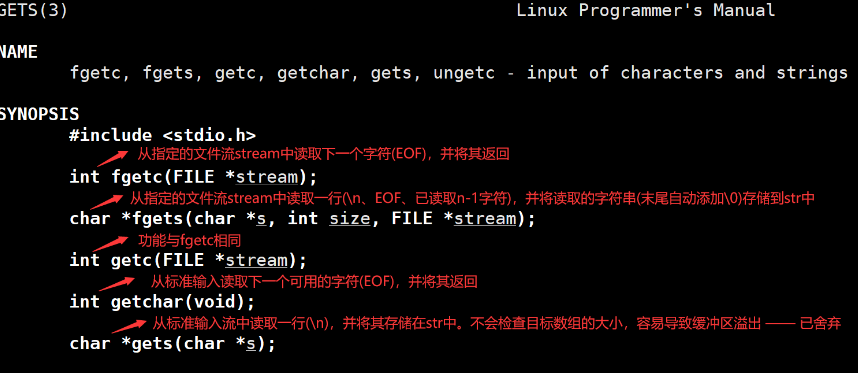




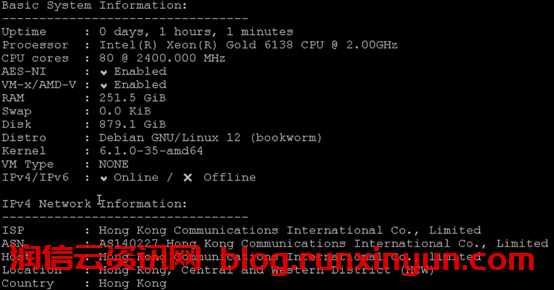

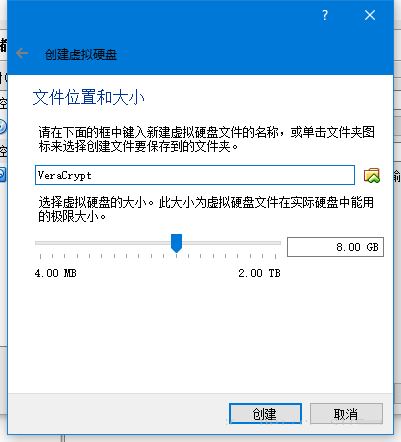

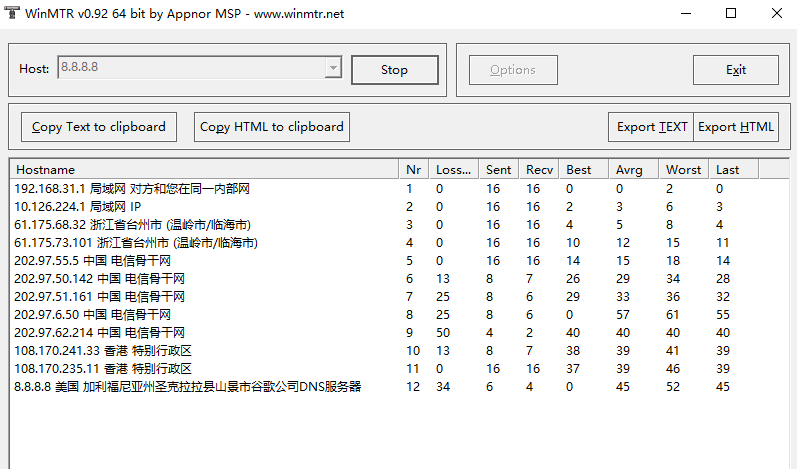

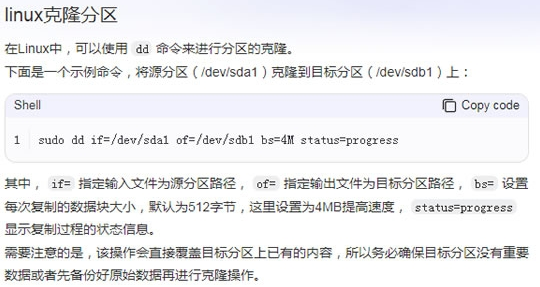









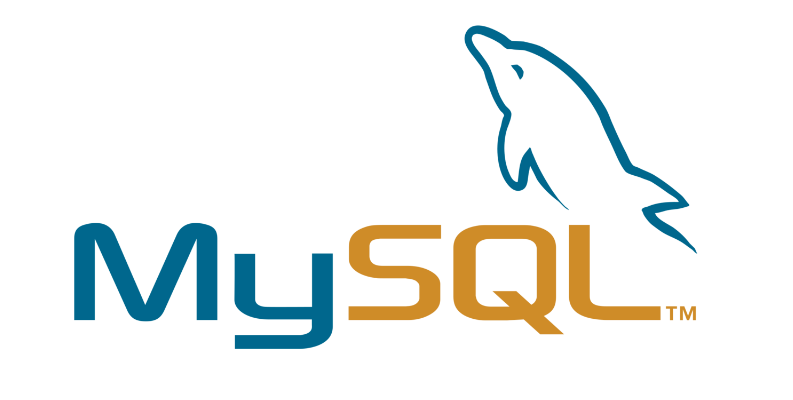


留言0